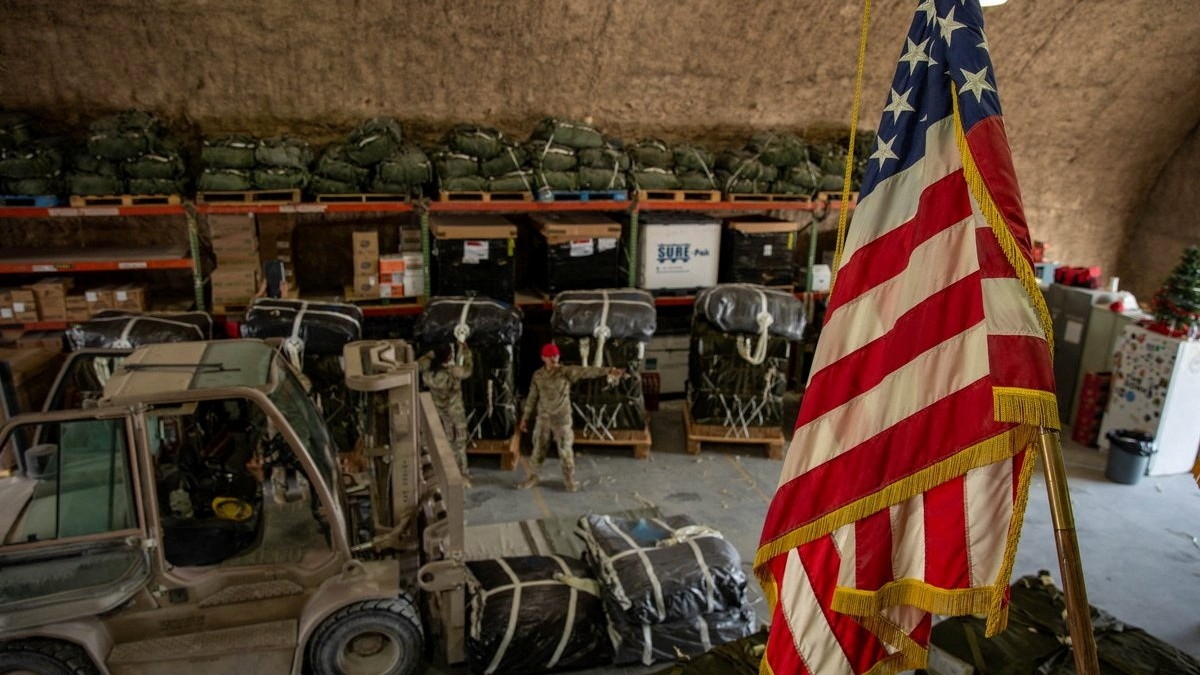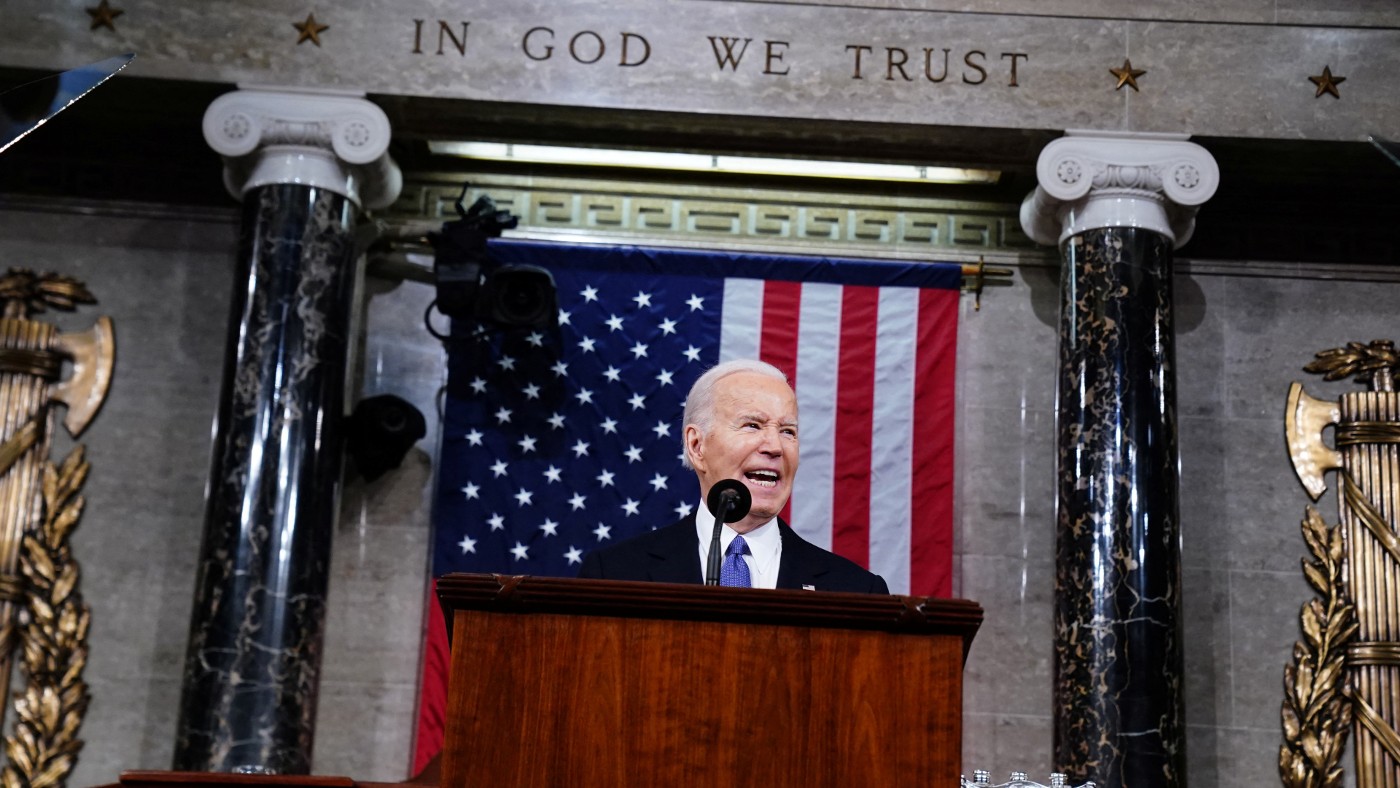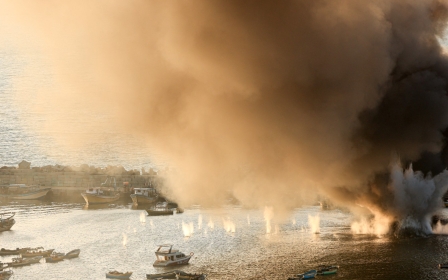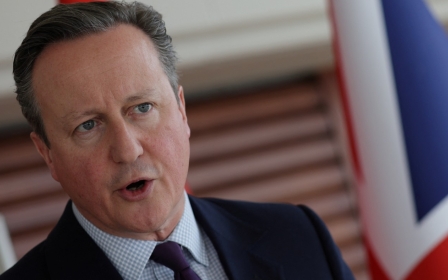'US weakness on steroids': Biden's Gaza port plan fails to impress

The headline from Joe Biden's State of the Union address to Congress broke hours before his speech: Washington planned to set up a "temporary" sea port on Gaza's coast to allow aid to enter more easily.
It's a plan that has been discussed for weeks by countries including the US and Israel, as well as the United Arab Emirates and Saudi Arabia.
“A temporary pier will enable a massive increase in the amount of humanitarian assistance getting into Gaza every day,” the US president said, announcing a scheme that would see the military construct a floating dock to receive deliveries of humanitarian aid into the Palestinian enclave.
But the idea has been severely criticised as an egregious example of US hypocrisy, with Biden accused of once again failing to stand up to Israel as Washington continues to provide the weapons and money with which it wages war on Gaza.
Ehud Yaari, an Israeli analyst familiar with the discussions, said that the aid bound for the floating pier would be launched on “huge rafts” from Larnaca and Limassol in Cyprus, which he said has participated in the discussions and stands to profit from the scheme if it goes ahead.
New MEE newsletter: Jerusalem Dispatch
Sign up to get the latest insights and analysis on Israel-Palestine, alongside Turkey Unpacked and other MEE newsletters
“There is a sense of urgency here. They want to make it happen as quickly as they can,” Yaari told Middle East Eye. “Air drops into the sea have provided a good photo opportunity for King Abdullah of Jordan, but the wind has blown much of the food into the water and the amounts are really very small.”
Faulty air drops also killed at least five civilians on Friday, while some of the aid delivered includes microwave meals that cannot be cooked by people starving out in the open with no access to electricity. The US said the floating pier plan will take "a number of weeks" to bring about.
500 trucks needed every day
Since the 7 October Hamas-led attack on Israel and the war on Gaza, the Israelis have severely restricted the flow of aid into the enclave. In January, Israeli Prime Minister Benjamin Netanyahu said that only the absolute “minimum” was allowed into Gaza to prevent a humanitarian crisis.
More than 30,000 Palestinians have been killed and almost the entire population has been displaced. Unable to grow their own food and deprived of the assistance they need, people in Gaza are starving to death and dying of diseases that would be preventable if they had access to medicines.
Juliette Touma, communications director for Unrwa, the UN’s agency for Palestinian refugees, told MEE that Palestinian civilians need a minimum of 500 aid trucks to come into Gaza every day. In February, the average daily figure was 99 trucks, while in March it was 140.
Biden 'could stop or condition the massive US military aid and arms sales to Israel'
- Kenneth Roth, former executive director of HRW
“Any effort to increase the flow of humanitarian aid to the people of Gaza is very welcome,” Touma told MEE. “However, there is a much easier and more efficient way to respond to people’s desperate needs. This is through more consistent humanitarian deliveries via the road through the crossing points that connect Gaza with Israel.”
Kenneth Roth, a human rights expert at Princeton’s School of Public and International Affairs, told MEE that “Biden’s plan for deliveries by sea is far from enough”.
It “begs the question of who will distribute the food, since most people in Gaza do not live on the beach, and Biden has joined in Israel’s efforts to destroy Unrwa, the most effective delivery vehicle”, he added.
In his speech to Congress, Biden said that the plan would not involve US boots on the ground, and Washington has said that it would work with the UN and humanitarian aid organisations that “understand the distribution and assistance within Gaza”.
“Biden still isn’t addressing Israeli obstruction of aid delivery, particularly to northern Gaza, where food shortages are most acute,” Roth said.
“Biden does have the tools to press Israel to stop its war-crime strategy of starving Palestinian civilians - he could stop or condition the massive US military aid and arms sales to Israel - but so far he refuses to use that obvious leverage.”
'US-made genocide'
That critique was echoed by Nimer Sultany, a law expert at Soas University of London, and Chris Doyle, director of the Council for Arab-British Understanding.
“The reason for the starvation and famine in Gaza is the US-supported Israeli genocide,” Sultany told MEE. “The US cannot absolve itself from responsibility for the US-made genocide by sending humanitarian aid while continuing to send bombs to slaughter Palestinians en masse.”
Doyle said that the proposed floating pier and the air drops - “bombs and bread” - were a sign of “US weakness on steroids".
"They are not able to insist that Israel facilitate the provision of aid overland," he said. "Biden could pause all financial and military assistance to Israel and, if this was another country, not Israel, the US would be acting differently.”
Following the provisional measures order recently published by the International Court of Justice (ICJ) in the ongoing dispute between South Africa and Israel, all states that are parties to the Genocide Convention, including the US and the UK, which is also championing the floating pier scheme, “have an obligation to prevent genocide in Gaza”, Sultany said. This was something the US was failing to do “despite the spectacle of humanitarian aid”, he added.
UN Security Council resolution 2417 imposes on Israel a legal obligation to allow humanitarian assistance into Gaza and prohibits it from using starvation as a weapon of war. As the occupying power, Israel has a legal obligation to Gaza’s residents to enable the disbursement of humanitarian assistance.
Responding to Israeli claims that protests by Israelis at crossing points have disrupted the flow of aid, Doyle referenced police crackdowns on demonstrators protesting Netanyahu’s judicial reforms last year and said that Israel “has shown it is perfectly capable of removing protesters when it wants to”.
With public opinion in western countries largely in favour of a ceasefire in Gaza, Doyle told MEE: “There is a huge gulf in these countries between the political leadership and the population at large.”
Saudi Arabia and the UAE are also key to the floating pier scheme, as they are to other plans for the future of Gaza being discussed at an official level.
“The UAE is pushing to do it by sea,” said Yaari. “It seems that the Saudis and Emiratis, despite their differences, would like a port in Gaza after the war, to give them access to the Mediterranean.”
This port, he said, would be part of the proposed India-Middle East-Europe Economic Corridor, a transport and economic integration scheme that involves Saudi Arabia, the European Union, India, the UAE, France, Germany, Italy, the US and Israel.
Middle East Eye delivers independent and unrivalled coverage and analysis of the Middle East, North Africa and beyond. To learn more about republishing this content and the associated fees, please fill out this form. More about MEE can be found here.





